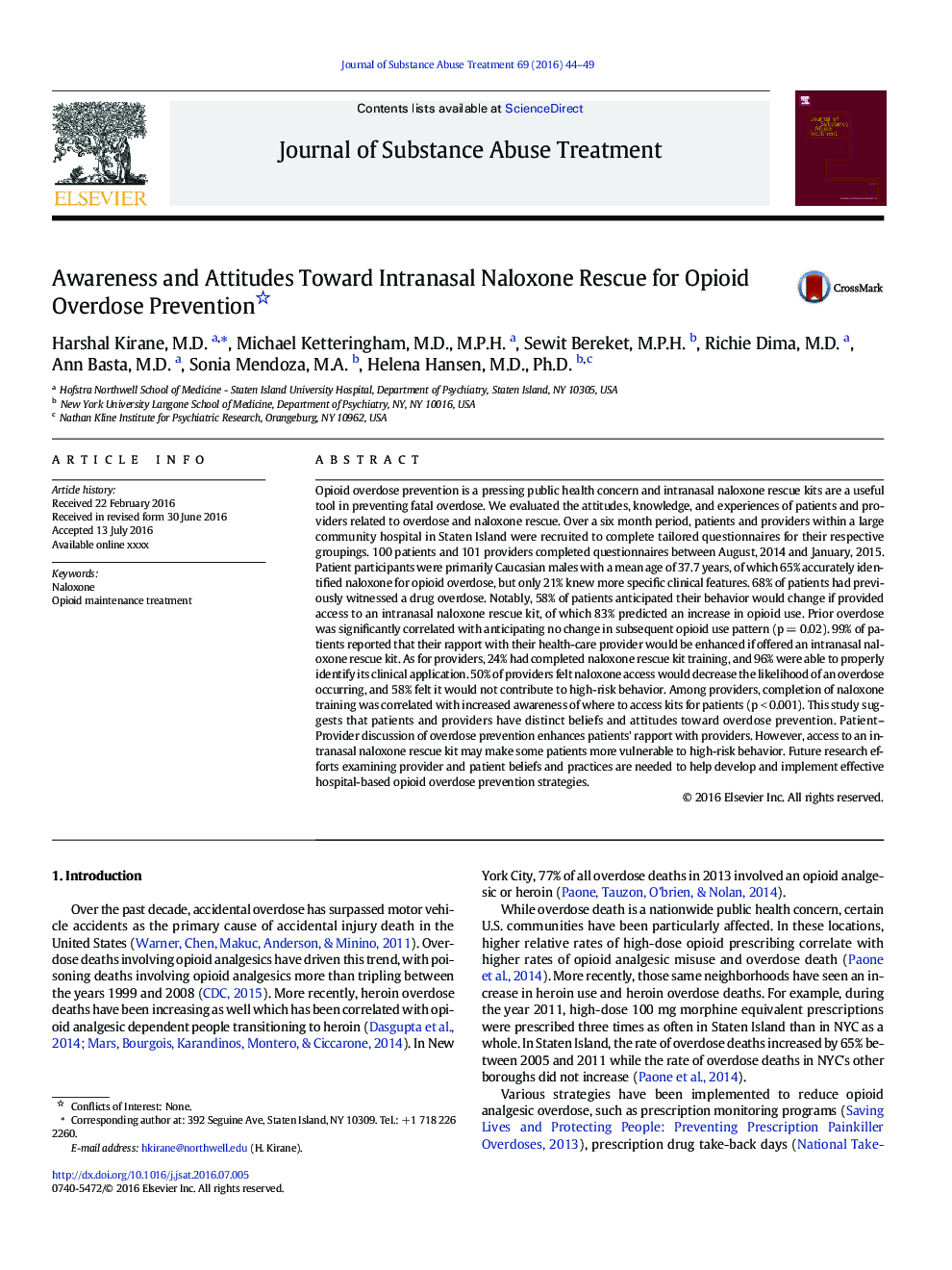| کد مقاله | کد نشریه | سال انتشار | مقاله انگلیسی | نسخه تمام متن |
|---|---|---|---|---|
| 329558 | 543554 | 2016 | 6 صفحه PDF | دانلود رایگان |
• We examined patient and provider attitudes and knowledge of naloxone.
• Provider naloxone training correlated with increased naloxone knowledge.
• Overdose prevention discussion may enhance rapport between patients and providers.
• Intranasal naloxone rescue kit access may increase patient high-risk behavior.
Opioid overdose prevention is a pressing public health concern and intranasal naloxone rescue kits are a useful tool in preventing fatal overdose. We evaluated the attitudes, knowledge, and experiences of patients and providers related to overdose and naloxone rescue. Over a six month period, patients and providers within a large community hospital in Staten Island were recruited to complete tailored questionnaires for their respective groupings. 100 patients and 101 providers completed questionnaires between August, 2014 and January, 2015. Patient participants were primarily Caucasian males with a mean age of 37.7 years, of which 65% accurately identified naloxone for opioid overdose, but only 21% knew more specific clinical features. 68% of patients had previously witnessed a drug overdose. Notably, 58% of patients anticipated their behavior would change if provided access to an intranasal naloxone rescue kit, of which 83% predicted an increase in opioid use. Prior overdose was significantly correlated with anticipating no change in subsequent opioid use pattern (p = 0.02). 99% of patients reported that their rapport with their health-care provider would be enhanced if offered an intranasal naloxone rescue kit. As for providers, 24% had completed naloxone rescue kit training, and 96% were able to properly identify its clinical application. 50% of providers felt naloxone access would decrease the likelihood of an overdose occurring, and 58% felt it would not contribute to high-risk behavior. Among providers, completion of naloxone training was correlated with increased awareness of where to access kits for patients (p < 0.001). This study suggests that patients and providers have distinct beliefs and attitudes toward overdose prevention. Patient–Provider discussion of overdose prevention enhances patients' rapport with providers. However, access to an intranasal naloxone rescue kit may make some patients more vulnerable to high-risk behavior. Future research efforts examining provider and patient beliefs and practices are needed to help develop and implement effective hospital-based opioid overdose prevention strategies.
Journal: Journal of Substance Abuse Treatment - Volume 69, October 2016, Pages 44–49
